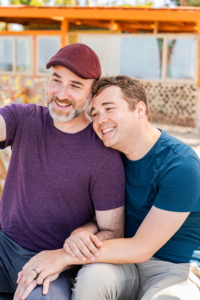Eric Larson, Executive Director of the San Diego County Farm Bureau, on LF at Encinitas City Council
 Eric Larson, Executive Director of the San Diego County Farm Bureau, spoke on behalf of the Leichtag Foundation at Encinitas City Council.
Transcript:
Eric Larson, Executive Director of the San Diego County Farm Bureau, spoke on behalf of the Leichtag Foundation at Encinitas City Council.
Transcript:
(see below for audio)
Thank you very much—I’ll get that slip afterwards.
Honorable mayor and members of the council, my name is Eric Larson, Executive Director of the San Diego County Farm Bureau, one of the founders of the San Diego Food System Alliance, and probably most proud to say that my family has owned and operated farmland in the city of Encinitas continuously since 1925. And we still own that farmland today and there’s a nursery on that site, and we’re glad to do that.
Because of my position in the Farm Bureau and because of my family’s history here in the city of Encinitas, I’m kind of a student in the history of agriculture in San Diego County. And if you go back, Encinitas has a great farming legacy: started out with dry farming: cattle ranching, bean farming, the growing of grains. But over time when water arrived that gave way to the production of field crops and fruit trees. We weren’t the best location for fruit trees; the fruit was a little sweeter if you grew it inland; the avocados were a little more robust if you grew them in places like Valley Center and Fallbrook. But nonetheless. So those changes then turned to more intense uses; we then became a very large tomato growing and strawberry growing community. Over time that gave way to cut flowers and indoor plant production. And those nurseries faced their challenges as well.
So what’s next if Encinitas is going to protect its agricultural legacy? It is urban farming. It’s producing food right close to the location where it’s going to be consumed; and people are excited about that everywhere. But it’s going to be really, really difficult to do. Water cost is high, land cost is high, and nobody wants to be a farmer anymore. So it’s going to be really difficult to do those.
So fortunately the Leichtag Foundation comes along and wants to overcome those hurdles. And one of the ways they want to overcome those hurdles is to extremely bright and committed and collaborative people onto that farm site within the footprint of an office—we’re talking about office space here, we’re not talking about ag land—they want to bring those people in and collaborate and look and see what they can do and what they can figure out. I think in those collaborations we have the opportunity to find ways to continue to be an urban agricultural community. And we might just find in those people that we bring in—that might not fit the exact definition of a farming organization—we may find those next farmers in those people who will come here and occupy that space, because they’re going to be in an agricultural setting, they’re going to see farming, they can’t help themselves, it’s going to be right there in front of them.
I suggest to you that what they want to do is not an accessory use but is absolutely an essential use to the success of that farm continuing to be an urban farm and even beyond that, I think it could become an incubator, where we might see additional urban farms pop up in a place like Encinitas, on some of the land that’s not developed, and maybe places like Carlsbad, or inland, and places like San Marcos and Vista, because people will see this example, and see what people are doing like at GoGreen Agriculture, which is capturing national attention—as you heard in previous testimony—and people all of a sudden do that and Encinitas again will be right on the top and be the capital of something—the capital of urban agriculture in Southern California. So I certainly suggest you deny the appeal. Thank you.
Audio:

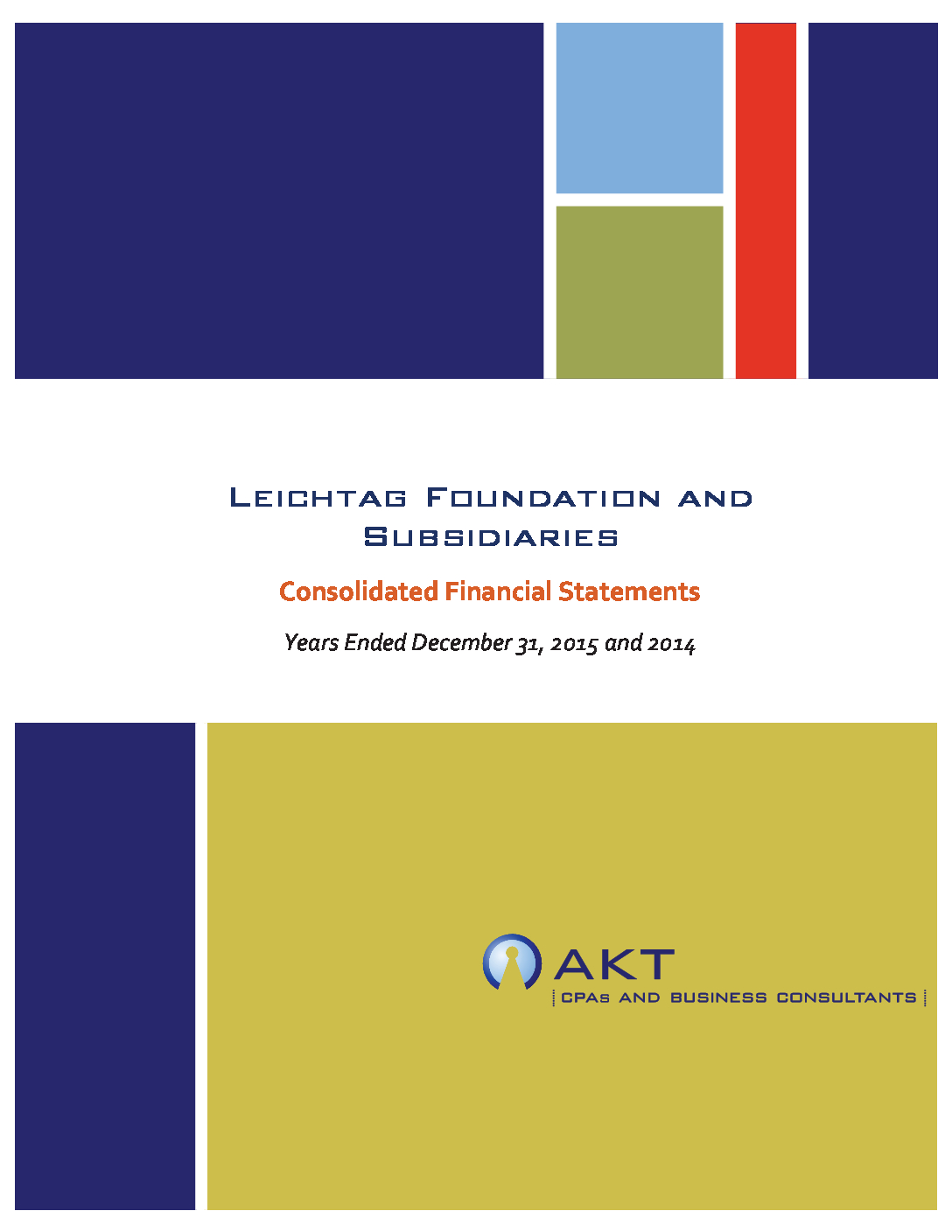
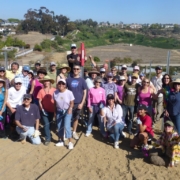
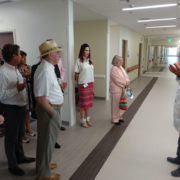
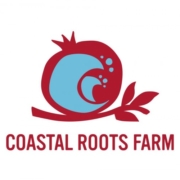
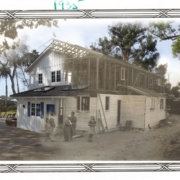


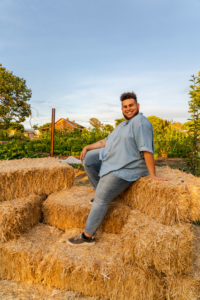 Black, Jewish and Queer. These three identities weave the fabric of who I am, but it took a long time to believe that they could exist together.
Black, Jewish and Queer. These three identities weave the fabric of who I am, but it took a long time to believe that they could exist together.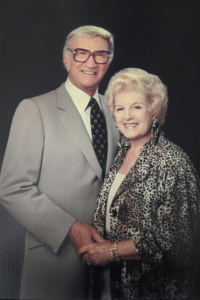 Lee and Toni Leichtag established the Leichtag Foundation in 1991 following the sale of their business. Lee and Toni were lifelong entrepreneurs with a passion for innovation and for supporting talent. They believed that only with big risk comes big reward. Both born to families in poverty, Toni to a single mother, they strongly believed in helping those most in need and most vulnerable in our community. While they supported many causes, their strongest support was for young children and the elderly, two demographics who particularly lack voice in our society.
Lee and Toni Leichtag established the Leichtag Foundation in 1991 following the sale of their business. Lee and Toni were lifelong entrepreneurs with a passion for innovation and for supporting talent. They believed that only with big risk comes big reward. Both born to families in poverty, Toni to a single mother, they strongly believed in helping those most in need and most vulnerable in our community. While they supported many causes, their strongest support was for young children and the elderly, two demographics who particularly lack voice in our society. Lifelong Baltimoreans, Rabbi George and Alison Wielechowski and their sons, 11-year-old Lennon and 9-year-old Gideon, are more than pursuing the good life in Southern California. Having moved to San Diego more than three years ago, they are fulfilling a lifelong dream.
Lifelong Baltimoreans, Rabbi George and Alison Wielechowski and their sons, 11-year-old Lennon and 9-year-old Gideon, are more than pursuing the good life in Southern California. Having moved to San Diego more than three years ago, they are fulfilling a lifelong dream.
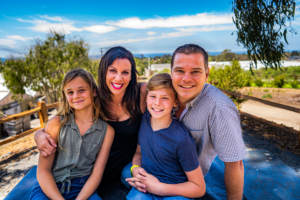
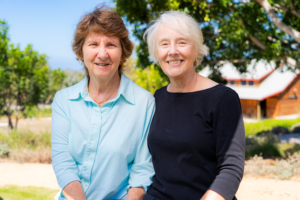

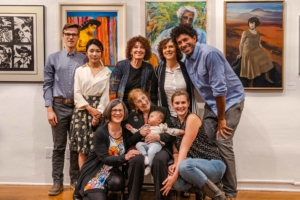
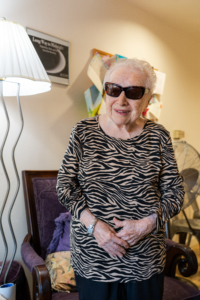
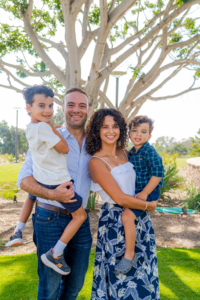
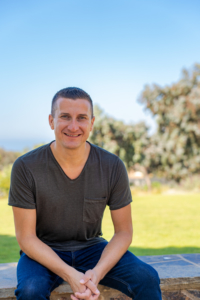 You would think that as the executive director of San Diego LGBT Pride, Fernando Zweifach López Jr., who uses the pronoun they, has done all the coming out they possibly can. A queer, non-binary individual who has worked for many years on civil rights issues, López also speaks openly and often about their father’s family, Mexican-American migrant workers who tilled the fields of rural California.
You would think that as the executive director of San Diego LGBT Pride, Fernando Zweifach López Jr., who uses the pronoun they, has done all the coming out they possibly can. A queer, non-binary individual who has worked for many years on civil rights issues, López also speaks openly and often about their father’s family, Mexican-American migrant workers who tilled the fields of rural California. Stacie and Jeff Cook understand commitment. They live it.
Stacie and Jeff Cook understand commitment. They live it.